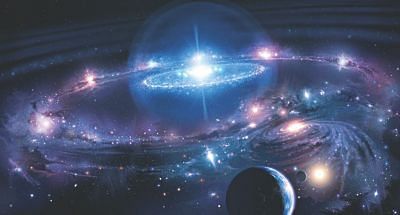Cosmic Censorship Hypothesis

Ultimate mystery
What is cosmic censorship? It is a hypothesis, developed in 1969 by British physicist Roger Penrose. It states that the Universe contains no singularities that are visible to the faraway observer, especially from the vicinity of a black hole. All the familiar singularities are located at the center of a black hole, which are hidden behind the event horizon that makes it invisible. Since what goes on in the region of singularity (a point in space-time at which the space-time curvature becomes infinite) is completely hidden from observation, we cannot see the comic events that take place inside that region. And this cosmic "unseeing" is referred to as cosmic censorship hypothesis and the singularities are called naked singularities.
At the singularity, the laws of science and our scientific ability to predict the future break down. And when an observant is stationed outside the black hole, the observer won't be affected by this failure of predictability as neither light nor anything whatsoever will reach him/her from the singularity. And when these naked singularities produced by a gravitational collapse, a celestial-type editing takes place that makes what truly takes place inside the black holes unknowable.
There are actually two kinds of cosmic censorship hypothesis, weak and the strong one. The weak cosmic censorship hypothesis states that no naked singularities other than the singularity created by the Big Bang itself ever existed in the Universe. The argument is: singularities definitely need to be hidden from an observer by the event horizon of a black hole, The strong cosmic censorship hypothesis, which is much more complicated states that given suitable data on a space-like hyperspace (a mathematical object that generalizes the concept of surface from 3-dimentional Euclidean space to hyperspace) is available, the laws of Einstein's general relativity should be able to determine the future evolutionary process of the Universe. The argument here is that while strong cosmic censorship is enforced for all black holes residing in asyndetically flat space-time, it is violated for some other black holes residing in non-asyndetically flat space-time. Scientists suggest that the semi-classical general relativity might enforce strong cosmic censorship hypothesis.

 For all latest news, follow The Daily Star's Google News channel.
For all latest news, follow The Daily Star's Google News channel. 



Comments